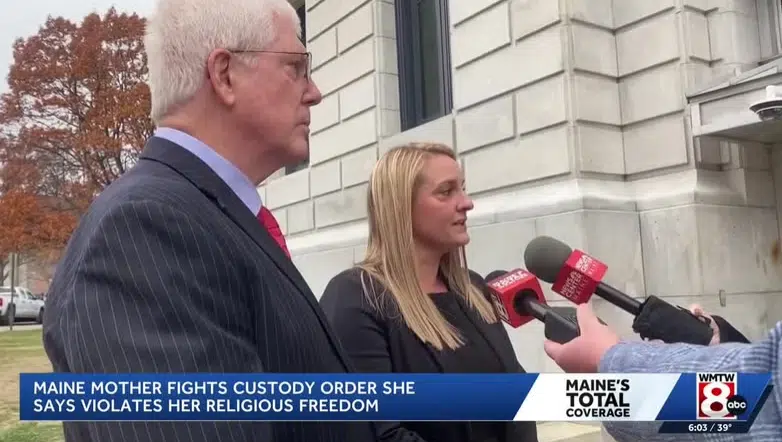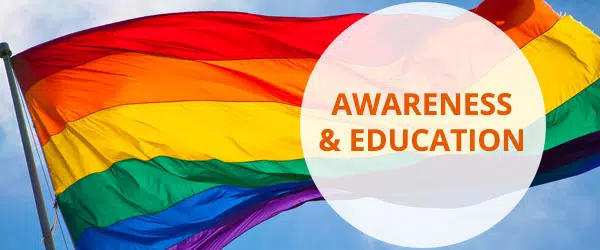
Six Key Takeaways from Tucker Carlson’s Interview with Vladimir Putin
The only downside to the release of the explosive Biden classified documents report last week was that it coincided with Tucker Carlson’s fascinating interview with Russian President Vladimir Putin. Somehow, as I expected, between Bidens dementia and the Taylor Swift Super Bowl, the Putin interview was pushed out of the spotlight and quickly faded.
Neocons, and to some extent leftists, were probably wiping sweat from their collective brows as the Biden classified documents case sucked all the oxygen out of the room the day the Putin interview aired.
While Biden spoke to a hastily assembled press conference to angerly deny he was senile, Carlson was airing his interview with Putin, which ran for over two hours and covered a myriad of subjects. The entire interview is captivating, but there were several issues Putin raised that demand further exploration and explanation from those U.S. officials who were involved at the time.
Putin Does Not Appear to be Seriously Ill
Shortly after Russia invaded Ukraine, the media became obsessed with Putin’s health. Speculation that he was suffering from thyroid cancer, dementia, pancreatic cancer and Parkinsons was rampant, and a picture emerged of a mentally diminished tyrant with a terminal condition, who was acting irrationally and pushing the world to the brink of a global holocaust.
Obviously, after watching Putin comport himself in the Carlson interview, we can conclude with a fair degree of certainty that none of that was true. Putin did not look ill at all. There was no shaking, tremors or other signs of a neurological disease throughout the two-hour interview. In fact, for a 71-year-old man, he looked remarkably good.
As for his mental acuity, the first segment of the interview, where Putin recounted a detailed history of the shifting borders and national identification in Eurasia, should have answered any question about whether Putin was still mentally sharp. He provided a thorough (but somewhat tedious) explanation of the events that led up to his decision to invade Ukraine. Can anyone imagine how Slow Joe would fare if he was tasked with discussing North American history to the same level of detail?
Putin asked to be Admitted to NATO
Apparently, in 2000, Putin asked U.S. President Bill Clinton if Russia could join NATO, and Clinton’s response was encouraging.
“‘You know, it’s interesting. I think so,’” Putin claimed Clinton told him. However, some hours later, when they met for dinner, Clinton said he had talked to his “team” and was told Russian admittance to NATO was not possible. Putin suggested Carlson ask Clinton directly about the encounter.
It’s difficult for those who weren’t adults when the Berlin wall fell to imagine the global political climate at that time. Russia was all-in on its fledgling democracy, and it desperately solicited aid, friendship, and financial support from the West as it struggled with the hardships that came from implementing an entirely new economic model.
Strangely, the West reacted tepidly toward Russia’s overtures, as evidenced by Clinton’s response to Putin’s request to join NATO, and over time, the West isolated Boris Yeltsin and then Putin while expanding to the east.
Putin Claims George Bush Jr. was not in Charge
One of the most interesting claims Putin made related to American subterfuge in Georgia under George Bush Jr. In 2008, Putin raised the issue of a covert CIA operation designed to undermine the legitimate government by supporting a separatist movement in Northern Georgia. Putin claimed Bush said such an action was “impossible.” After being shown proof of the allegation, Bush promised Putin he would “kick their (those responsible) ass.” When Putin realized the CIA operation was continuing despite Bush’s assurance, he had Russia’s FSB director reach out to the CIA, and they received this reply: “We have been working with the opposition in Russia. We believe that this is the right thing to do, and we will keep on doing it.”
Putin Proposed a Multi-National Missile Defense System
In 2007, Putin says that while visiting Bush in Kennebunkport, Maine, he proposed developing a joint missile defense system in concert with the United States and Europe, believing such a project would change the trajectory of world peace. According to Putin, Bush was initially enthusiastic and said he would seriously consider the proposal.
Ultimately, Putin said Defense Secretary Robert Gates and Secretary of State Condoleezza Rice came to Russia later and offered a counter proposal that differed dramatically from Putin’s original offer. At the time, the U.S. claimed that its defensive missile systems in Eastern Europe were deployed to deter Iran.
Boris Johnson Torpedoed a Peace Agreement
In the interview, Putin once again claimed that the former British Prime Minister, Boris Johnson, undermined a peace agreement known as the Minsk Accords by persuading Ukraine’s President Zelenskyy not to sign the treaty. While both Johnson and Zelenskyy dismiss the notion, with Johnson calling it “nonsense and Russian propaganda,” other reports issued at the time heavily implicated Johnson in killing the deal.
NATO Moved Offensive Weapons into Poland and Romania
Among the most contentious issues for Russia is a perception that NATO is continually encroaching on their border with Eastern Europe. Specifically, Putin identified MK 41 missile launchers, deployed in Poland and Romania, that are capable of firing Tomahawk cruise missiles, which are offensive weapons. Putin argues that placement of such weapons near Russia’s borders would be akin to positioning similar Russian weapons in Mexico near the border with Texas.
Questions Must be Answered
The Carlson interview raised a variety of uncomfortable questions, especially within the context of a proxy war in Ukraine that has cost the U.S. $100 billion of borrowed money in a time when we are running $2 trillion annual deficits.
Most importantly, the question of why the U.S. and Western Europe were unsupportive of Russia’s fledgling democracy is most compelling, and the issue has never been explored, let alone answered. Regardless of their GDP at the time, it seems painfully obvious that Western nations would want to integrate Russia into the EU and NATO as soon as possible. If it is true that Putin asked Clinton to join NATO, then we need an explanation as to why that request was rejected. Similarly, George Bush Jr. needs to provide clarification as to why he vetoed Putin’s joint missile defense initiative? Vague answers that lack detail are not real answers. A project of that scale could have deescalated tensions and been a precursor to broader agreements on reducing nuclear warheads and delivery systems across the board.
Did Boris Johnson kill the Minsk Accords? If so, why? Clearly, there were diplomats from other countries involved. We need to hear from all of them.
As always, any trail that starts with Russia seems to lead back to NATO and a fundamental question: What would NATO’s mission be if Russia was not an enemy? How many billions of dollars would the U.S. defense industry lose if Russia was no longer a threat to Europe or America?
Why has the CIA allegedly worked to incite insurrection in Ukraine and Georgia instead of focusing on rebuilding its relationship with Russia and Putin? Is it a coincidence that Russia was tagged as the culprit in the fake Russian collusion effort designed to bring down a sitting U.S. president?
These are all legitimate questions that deserve truthful answers.
Those who were not alive at the time may not understand the monumental opportunity that was squandered when the Berlin wall came down in 1989. It was the kind of opportunity to change the direction of humanity that rarely presents itself, and according to Putin, the west turned it down.
We need to know why, and after Carlson’s interview, framing Putin as a senile madman on his deathbed won’t work.
The question we must ask ourselves is this: What unilateral action did Russia take that wasn’t the result of a provocation from the West? It’s a fair question and grounds for a legitimate discussion. Perhaps Carlson can host a forum among relevant Russian and U.S. officials whose decision impacted the relationship from the fall of the Berlin Wall to the present. It would be a worthwhile exercise to determine why the relationship has failed, and what can be done to salvage it. Based on what he said to Carlson, Vladimir Putin seems to want better relations with the West.
Regrettably, I doubt you will ever see such a gathering because NATO wouldn’t want that to happen. Remember, a bad relationship with Russia is good for the defense industry’s bottom line.
It’s as simple as that.



